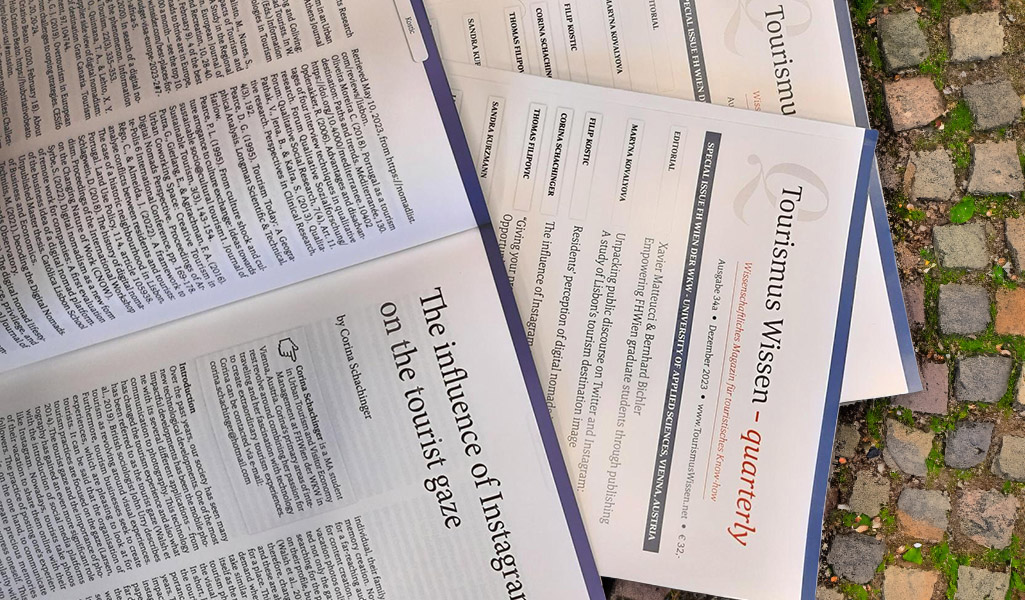In a pioneering initiative, students at FHWien der WKW have demonstrated their academic skills and contributed to a special issue of the scientific journal Tourismus Wissen Quarterly.
Initiated by Florian Aubke, Head of Tourism & Hospitality Management Study Programs at FHWien der WKW, the special issue of Tourismus Wissen Quarterly breaks barriers by bringing the students’ voices to the foreground. The publications are not only a showcase of their intellectual abilities, but also a demonstration of the university’s commitment to promoting academic tourism research.
“In general, the opportunities for students to publish their work are limited. This is not due to a lack of skills, but to a lack of attention and support,” explains Xavier Matteucci, Academic Expert & Lecturer and editor of the special issue.
He explains that “this project encourages students to push their academic boundaries and take ownership of their ideas. The publication process, which took several months, involved a rigorous review and feedback process, which underlines the students’ commitment to the work.” The diverse contributions include empirical work from Master’s theses and insightful essays by second semester students, all focusing on the vibrant city of Lisbon.
Scientific insights into Lisbon’s tourism reality
Two academic papers delve into Lisbon’s tourism landscape, exploring the public discourse around the Web Summit Lisbon 2022 and residents’ perceptions of digital nomads. These studies shed light on the impact of large events and emerging social trends on local communities.
The influence of social media is the focus of an essay by Corina Schachinger, in which she examines the role of Instagram for the tourist gaze. Thomas Filipović examines the importance of personal relationships in tourist encounters and emphasizes that despite technological advances, virtual environments can never completely substitute on-site interactions.
Critical issues such as overtourism, cultural appropriation and ethical considerations are addressed in the contributions, as is the future of sustainable tourism. Sandra Kurzmann gives an overview of Austria’s climate-neutral strategy and emphasizes the need for cooperation between diverse stakeholders to tackle the challenges of global warming.
Artificial intelligence (AI) is becoming an important player in the tourism industry. Lisa Kebritsch examines its applications, opportunities and challenges. The potential impact of the introduction of AI on employment also raises questions about the future of the tourism sector.
The special issue concludes with a reflection on the EuroCHRIE 2023 conference, which offers insights into digital transformation, AI in the hospitality industry and innovative changes in the events industry. This collaborative space that brought together educators, researchers and practitioners was an enriching experience for the students.
